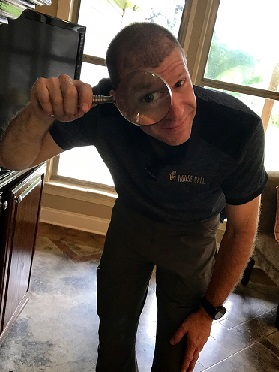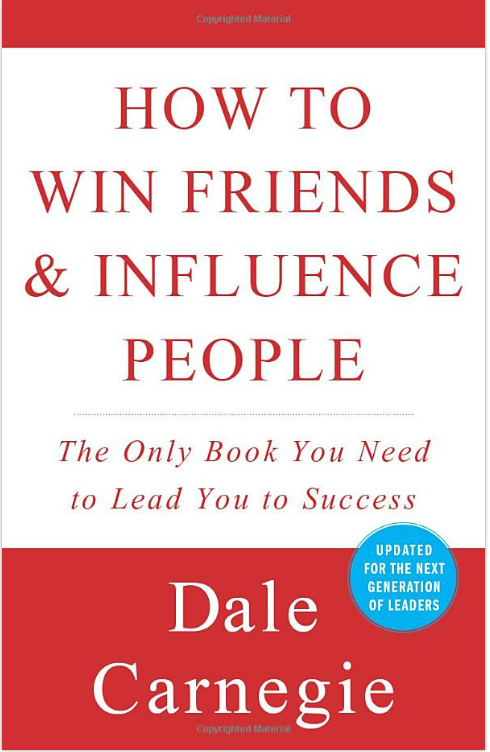Think about the last time you spent an evening at a restaurant with some good friends. Was it an enjoyable experience? Can you remember all the details? How nicely was the food presented? How professional was the service? How clean and comfortable was the restaurant? Was the noise level acceptable, enhancing the meal? Overall, did you have a pleasant experience, and will you be inclined to patronize that restaurant again in the future?

These are all valid questions about the evening, and each of these points contribute to lasting memories about that restaurant. However, if you noticed, we didn’t even mention how the food tasted.
Having spent the majority of my life living in and around New Orleans, one of the greatest restaurant cities in the world, I’ve experienced some of the top culinary offerings available. However, when I think back on some of the best evenings that I’ve enjoyed at a restaurant, the memories that are most prominent in my mind are related to my entire experience, rather than the actual food that I eat there. And while there are some notable exceptions to this statement, such as Bananas Foster for desert at Brennan’s, even these gastronomical exceptions are linked with the memorable presentation that permanently fixed them in my mind.
Thinking back on all the restaurants that inhabit my own “10-worst list,” more often than not, those unpleasant memories are linked to my overall experience. Usually, something other than the food is responsible for turning a specific restaurant into a bad experience.
I bring up these points to emphasize the importance of our client’s experience to the success of our business. And this experience is driven almost exclusively by the quality of our personal interaction.
As home inspectors, we’re typically dealing with people who are making the biggest financial decision of their lives. As a result, they’re often incredibly nervous and apprehensive. The way we act during the inspection can either contribute to their apprehension or it can help alleviate some of their fears.
While we’re on stage at the inspection, running the show so to speak, we have an incredible opportunity. We’re in a unique position, able to use our temporary status as an authority figure to influence the way in which our clients think about their home buying experience.
Obviously, we should use this time to explain to our clients what’s going on with their (potential) new house. But, if we stop and think about it, we can use this time to do so many things other positive things if we’re just cognizant of the importance of the situation and put our temporary super powers to good use.
While we’re at the inspection, we need to make sure that the client knows that we’re working for their benefit. At this moment, we want to be viewed as a trusted advisor, the expert on “all things house.” We must realize this fact and take full advantage of our temporary position of authority.
We can put this power to work to do many different things. While we certainly should strive to provide the maximum benefit for our clients, we can also ensure that we’re benefiting from the process as well.
By doing a good job on our inspection, as well as relaying our findings in an effective manner, we have the ability to ease some of the tension that our clients are feeling. Clear, concise and rational communication can help to allay some of their fears about their home buying process. Obviously, this provides tangible benefits to our clients.
By presenting a professional persona, we have the opportunity to embed ourselves in their minds as the go-to, authority figure in the inspection business. And by developing a reputation as their trusted advisor, we benefit ourselves, as many good things can happen as a result of gaining their confidence.
As people always like to boast when they feel like they gotten a great deal, our clients are likely to tell their friends about how smart they were to have found such a wonderful inspector. We’re likely to get some future business from this free advertisement, as eventually someone in their social media audience is likely to be buying a home. Our clients are also more likely to contact us for advice when something inevitably malfunctions in their new home, instead of getting upset with us for “missing” their problems in our inspection report.
All too often, home inspectors don’t realize the valuable opportunity that’s dropped in our laps at each inspection. Instead of taking the long view, we mistakenly look at our jobs as though we’re simply presenting the facts. We act like a high school student working on a final exam, regurgitating rote facts without a clear understanding of their effects.

We must be aware of the reality that our clients are relying on us to not only relay the facts about our inspection, but to put these facts into proper perspective. They hire us to translate our findings from “home inspector speak” into a language understood by normal people. While the phrase intersystem bonding terminal may mean something to us (and if you don’t know what this is, I hope you’re checking it out right now…), it’s our job to explain what it is, what it does and why their house needs one, in language they can easily understand.
If you stop and think about it, there’s a tremendous amount of information that must be learned to be successful on the National Home Inspection Exam. On average, it takes most people around 2-3 months of intense studying to grasp the concepts necessary to achieve a passing score. But even though it’s a lot of hard work, it can be done by almost anyone. With enough time spend studying, most students can absorb enough knowledge to earn a passing grade.
Unfortunately, it’s much more difficult to learn how to talk to people. “People skills” are something that you’re born with; you either have it or you don’t. And while we can always improve on these skills through study and repetition, it’s very difficult to improve on a skill that you don’t already possess.

To paraphrase Gail Godwin, American novelist and short story writer, doing a home inspection is one-fourth preparation and three-fourths theater. The inspectors that do a good job of not only relaying the facts but helping their clients understand that information, will be the most successful.
We should constantly strive to become a master of “all things house.” Regularly adding to our knowledge of the industry is of paramount importance to us as well as the clients that depend on that knowledge. It’s equally, if not more important to polish our people skills.
Obviously, we all want to be known as an intelligent inspector. But being smart and relatable will get you much farther in your business.
People will forget what you said, people will forget what you did, but people will never forget how you made them feel.
Maya Angelou
Would you like to get an email every Friday where we share the newest things we’ve discovered about home inspections? CLICK HERE to sign up.
Want to be an Influencer in Your Field? Share This Post!
Thanks, Joe


